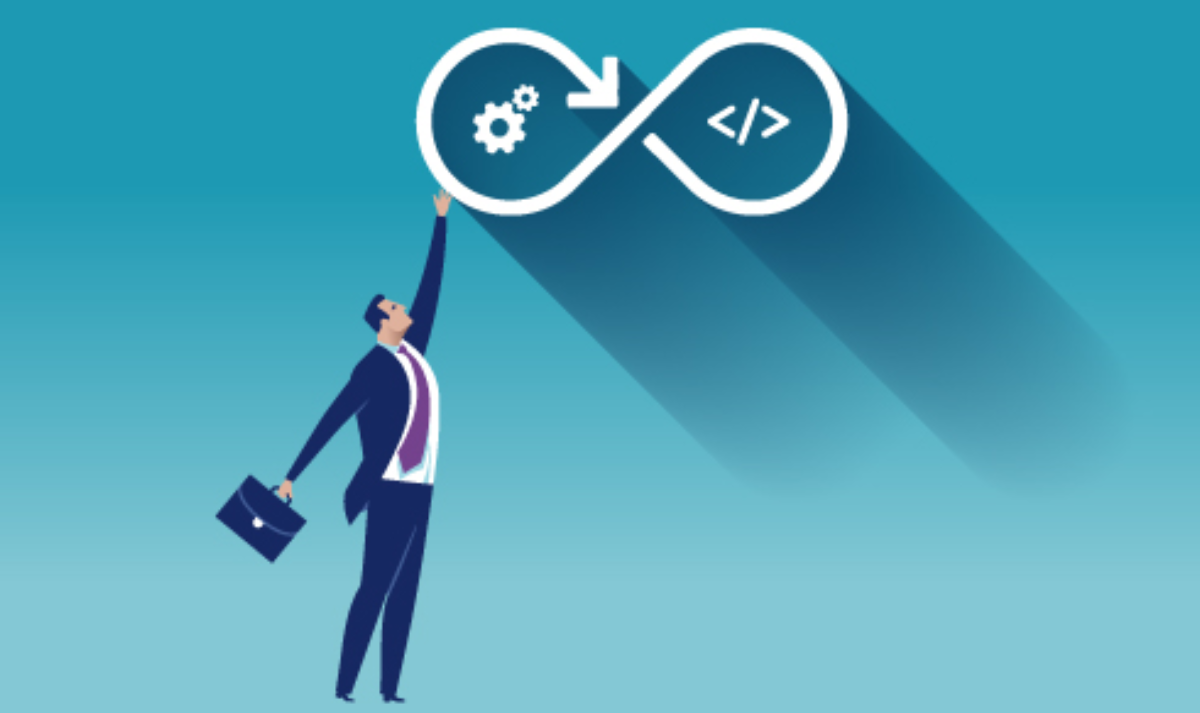
DevOps Engineer
A DevOps Engineer is a professional responsible for bridging the gap between development (Dev) and operations (Ops) teams within an organization. The role of a DevOps Engineer is to promote collaboration, communication, and integration between these traditionally separate teams, with the ultimate goal of enhancing the software development and deployment process.
In the past, development and operations teams often worked in silos, leading to inefficiencies, delays, and misunderstandings between the two groups. The DevOps Engineer's role emerged to break down these barriers and foster a culture of collaboration and shared responsibility.
Key responsibilities of a DevOps Engineer include:
1. **Automation:** Developing and maintaining automated processes for software build, deployment, and infrastructure provisioning. Automation helps achieve faster and more consistent software delivery.
2. **Continuous Integration and Continuous Deployment (CI/CD):** Implementing CI/CD pipelines to automate the testing and deployment of code changes, ensuring frequent and reliable releases.
3. **Infrastructure as Code (IaC):** Treating infrastructure provisioning and management as code, using tools like Terraform or CloudFormation to enable consistent, version-controlled infrastructure setups.
4. **Monitoring and Logging:** Implementing monitoring and logging solutions to gain visibility into the health and performance of applications and infrastructure.
5. **Security and Compliance:** Ensuring that security practices and compliance requirements are integrated into the development and deployment processes.
6. **Collaboration:** Facilitating communication and cooperation between development, operations, and other stakeholders to align their objectives and work effectively together.
7. **Cloud Computing:** Leveraging cloud platforms for scalable and flexible infrastructure, enabling quick deployment and resource provisioning.
8. **Problem-solving and Troubleshooting:** Resolving issues related to application performance, availability, and infrastructure problems.
The role of a DevOps Engineer has evolved significantly in the era of cloud computing. Beyond just being responsible for managing the infrastructure and automating deployment processes, a modern DevOps Engineer plays a crucial role in shaping a culture of learning and empathetic leadership within the organization. Let's explore the key aspects of this transformation:
1. **Embracing Continuous Learning**: Cloud computing and DevOps practices are constantly evolving. A DevOps Engineer must keep up with the latest technologies, tools, and best practices. By being a lifelong learner, they can bring fresh ideas and innovative solutions to the team.
2. **Promoting a Learning Culture**: A DevOps Engineer can help create an environment where continuous learning is encouraged. This can be achieved by organizing workshops, training sessions, and knowledge-sharing events for team members to upskill and stay relevant.
3. **Advocating Collaboration**: Cloud computing often involves multi-disciplinary teams, including developers, operations, security, and other stakeholders. A DevOps Engineer acts as a bridge between these teams, promoting effective communication and collaboration. By fostering an open and inclusive environment, they encourage teamwork and shared ownership.
4. **Leading by Example**: An empathetic DevOps Engineer leads by example, demonstrating patience, understanding, and support for team members. They actively listen to their concerns and perspectives, fostering a sense of trust and psychological safety.
5. **Mentoring and Coaching**: DevOps Engineers can mentor junior team members, helping them grow in their careers. By providing guidance and constructive feedback, they empower others to take on new challenges and responsibilities.
6. **Encouraging Innovation**: Cloud computing allows for rapid experimentation and innovation. A DevOps Engineer should encourage team members to propose new ideas and solutions, even if they involve taking calculated risks.
7. **Empathizing with End Users**: Cloud-based applications often serve a global user base. A DevOps Engineer should empathize with end users and understand their needs to deliver reliable, scalable, and high-performance services.
8. **Emphasizing Security and Compliance**: In the cloud era, security is paramount. A DevOps Engineer should prioritize security measures, ensuring data protection and compliance with industry standards and regulations.
9. **Automating for Efficiency**: DevOps Engineers should leverage automation tools and frameworks to streamline processes, reduce manual intervention, and improve overall efficiency. This allows the team to focus on more valuable tasks.
10. **Monitoring and Performance Optimization**: With cloud computing, monitoring and performance optimization become critical. A DevOps Engineer should proactively monitor system health, identify bottlenecks, and optimize resources for cost-effectiveness.
11. **Resilience and Disaster Recovery**: Cloud environments enable high availability, but outages can still occur. A DevOps Engineer should design systems with resilience in mind and have well-defined disaster recovery plans.
By embodying these traits and practices, a DevOps Engineer can contribute significantly to the success of cloud-based projects, fostering a culture of continuous learning, innovation, and empathetic leadership within the organization.







